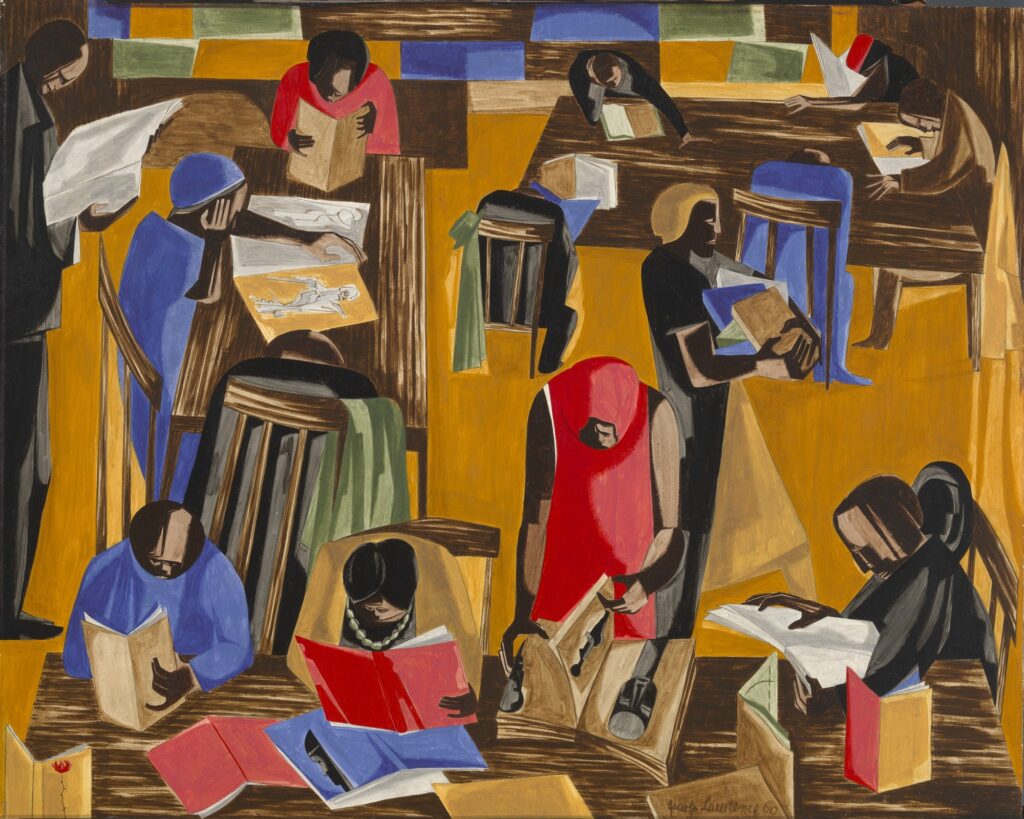Tuesday
February as Black History Month has a different feel this year as GOP legislatures around the country hurry to pass laws designed to censor teachers who teach any aspects of American history that make white students (in the words on a Texas legislator) “feel discomfort.” Washington Post’s Greg Sargent, for instance reports on a New Hampshire bill that
would ban the advocacy of any “doctrine” or “theory” promoting a “negative” account of U.S. history, including the notion that the United States was “founded on racism.”
Additionally, the bill describes itself as designed to ensure teachers’ “loyalty,” while prohibiting advocacy of “subversive doctrines.”
Indiana legislators, as they propose their own bills, are also backing them up with “extreme penalties.” Pen America reports,
In addition to HB 1040, two others threaten teachers with termination. Six include a private right of action. And three would punish schools by cutting them off from all state tuition dollars and levying a fine of up to $10,000 per student subject to the violation.
It’s particularly rich that these bills come from a party that refused to impeach Donald Trump for inciting a takeover of the Capitol, that has attempted to undercut investigations of that takeover, and that now simply ignores (when it doesn’t actually applaud) his open admission that he was trying to overturn the election. Perhaps seeing subversive doctrines amongst fellow Republicans has caused them to see subversion everywhere.
I find myself wondering, given all this, how English teachers will be viewed as they teach those many African American poems that deal with America’s uncomfortable racial history. It’s not hard to imagine certain Virginia parents taking advantage of Gov. Younkin’s recent snitch law to report those teaching the following poems in their classes. The first addresses lynching in general, the next two specific racial killings:
Song for a Dark Girl
By Langston Hughes
Way Down South in Dixie
(Break the heart of me)
They hung my black young lover
To a cross roads tree
Way Down South in Dixie
(Bruised body high in air)
I asked the white Lord Jesus
What was the use of prayer.
Way Down South in Dixie
(Break the heart of me)
Love is a naked shadow
On a gnarled and naked tree.
Last Quatrain of the Ballad of Emmett Till
By Gwendolyn Brooks
(after the murder,
after the burial)
Emmett’s mother is a pretty-faced thing;
the tint of pulled taffy.
She sits in a red room,
drinking black coffee.
She kisses her killed boy.
And she is sorry.
Chaos in windy grays
through a red prairie.
Ballad of Birmingham
By Dudley Randall
(On the bombing of a church in Birmingham, Alabama, 1963)“Mother dear, may I go downtown
Instead of out to play,
And march the streets of Birmingham
In a Freedom March today?”“No, baby, no, you may not go,
For the dogs are fierce and wild,
And clubs and hoses, guns and jails
Aren’t good for a little child.”“But, mother, I won’t be alone.
Other children will go with me,
And march the streets of Birmingham
To make our country free.”“No, baby, no, you may not go,
For I fear those guns will fire.
But you may go to church instead
And sing in the children’s choir.”She has combed and brushed her night-dark hair,
And bathed rose petal sweet,
And drawn white gloves on her small brown hands,
And white shoes on her feet.The mother smiled to know her child
Was in the sacred place,
But that smile was the last smile
To come upon her face.For when she heard the explosion,
Her eyes grew wet and wild.
She raced through the streets of Birmingham
Calling for her child.She clawed through bits of glass and brick,
Then lifted out a shoe.
“O, here’s the shoe my baby wore,
But, baby, where are you?”
I conclude with a poem that directly addresses the issue of black history itself:
i am accused of tending to the past as if i made it
By Lucille Clifton
i am accused of tending to the past as if i made it,
as if i sculpted it
with my own hands. i did not.
this past was waiting for me
when i came,
a monstrous unnamed baby,
and i with my mother’s itch
took it to breast
and named it
History.
she is more human now,
learning language everyday,
remembering faces, names and dates.
when she is strong enough to travel
on her own, beware, she will.
Speaking for myself, I spent much of my childhood being discomfited by all kinds of things. When I learned how to talk about them, they discomfited me less. On the other hand, anything I tried not to see but pushed under assumed a toxic power. The return of the repressed, as Freud called the process.
Repressing our racial history will not help our kids. Or heal our country.
